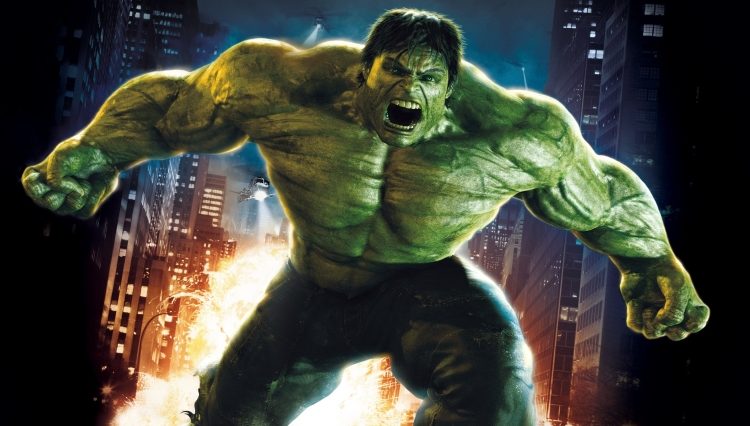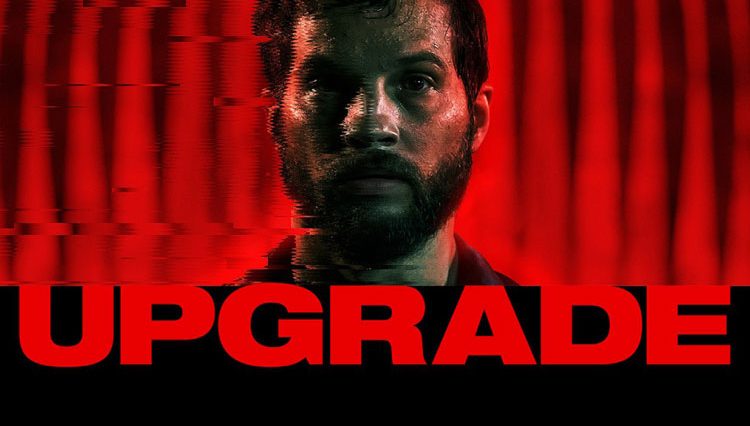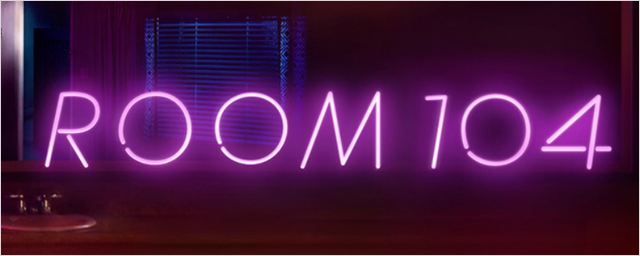 When it comes to quality television, you can count on HBO to provide the best – even if the program is not the type to generate huge ratings and cable subscriptions. Case in point, Room 104, an anthology series created by Jay and Mark Duplass. The premise of the series questions what stories the walls of an American hotel room could tell when different characters check in every night. Each episode is complete in itself; a separate story each with different characters. In one episode a spiritually-hungry woman seeks guidance from a cult priest. In another, a recently-separated man comes to terms with his past when he seeks marital advice from the ghost of a long-dead friend. Each story is a completely different genre; from psychological terror, mystery, and romance.
When it comes to quality television, you can count on HBO to provide the best – even if the program is not the type to generate huge ratings and cable subscriptions. Case in point, Room 104, an anthology series created by Jay and Mark Duplass. The premise of the series questions what stories the walls of an American hotel room could tell when different characters check in every night. Each episode is complete in itself; a separate story each with different characters. In one episode a spiritually-hungry woman seeks guidance from a cult priest. In another, a recently-separated man comes to terms with his past when he seeks marital advice from the ghost of a long-dead friend. Each story is a completely different genre; from psychological terror, mystery, and romance.
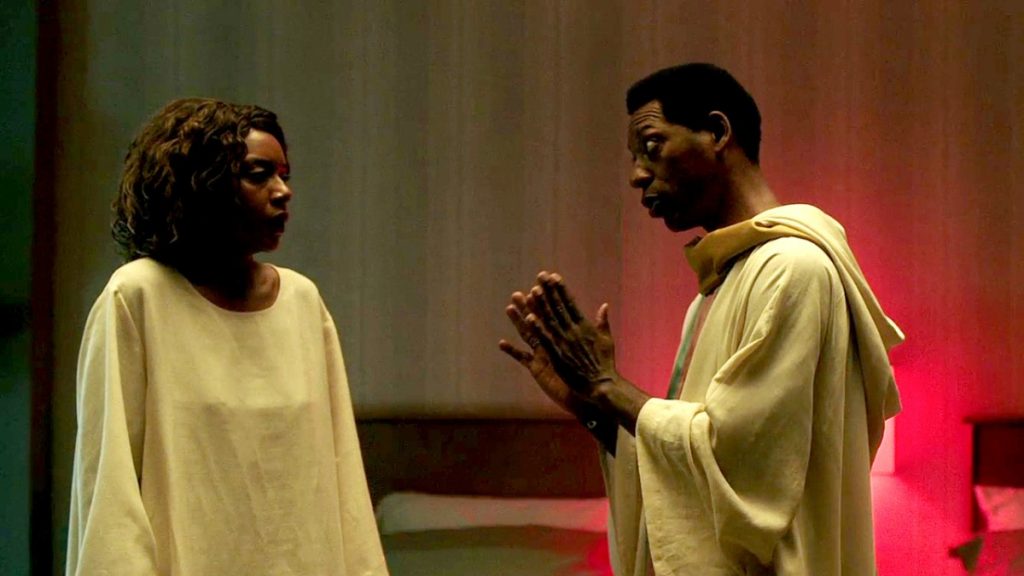
The Duplass brothers followed a series of rules to engage in production. Most notably the limited number of the cast (usually consisting of two or three max) and each story remains confined within the hotel room. The true craftsman of storytelling is the ability to establish character, define conflict, and reveal the resolution within the allotted 25 minutes. Some find redemption, others face comeuppance. In most cases the visual aspect of telling the story through the lens is effectively applied – the past events leading up to check-in are rarely described verbally. The audience quickly figures out what those events were based on visuals, props and sometimes communication exchanged with a voice over the phone.
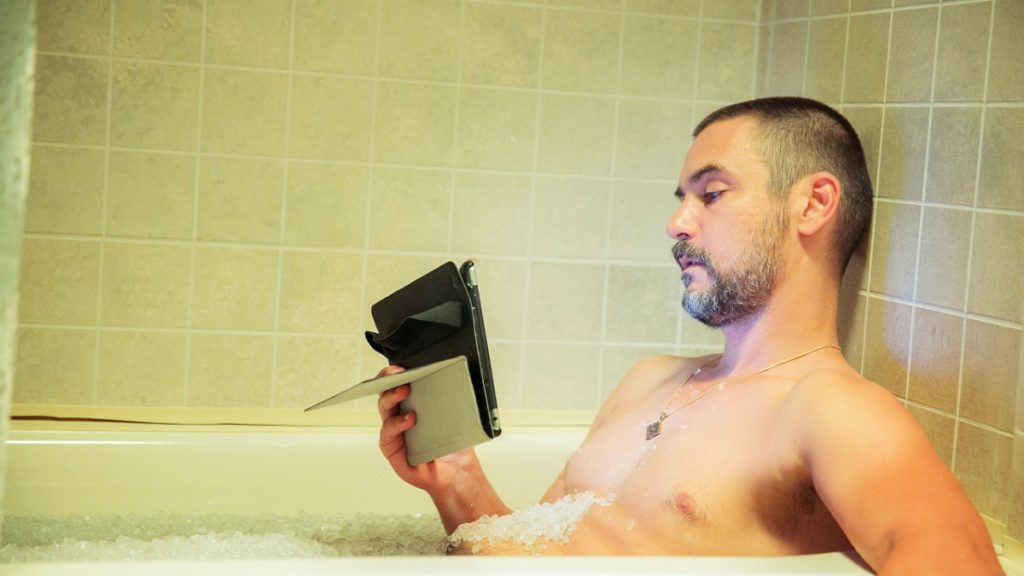
In “Boris,” an aging alcoholic Croatian tennis player forms a bond with the hotel housekeeper when he reveals memories of his tortured past growing up in war-torn Croatia during the early 1990s, while she, in turn, reveals her status as an undocumented immigrant. In “The Fight,” two female MMA fighters conspire together to throw a fight and earn a bigger payout for an upcoming match – until they have to choose which of them will tap out. The decision is based on an impromptu match that creates holes in the walls, smashed furniture, and bloody scars. In “Red Tent,” a young man plans to detonate an explosive at a political convention but finds his escape route temporarily thwarted by an air conditioner repairman – who may or may not be working for the FBI.
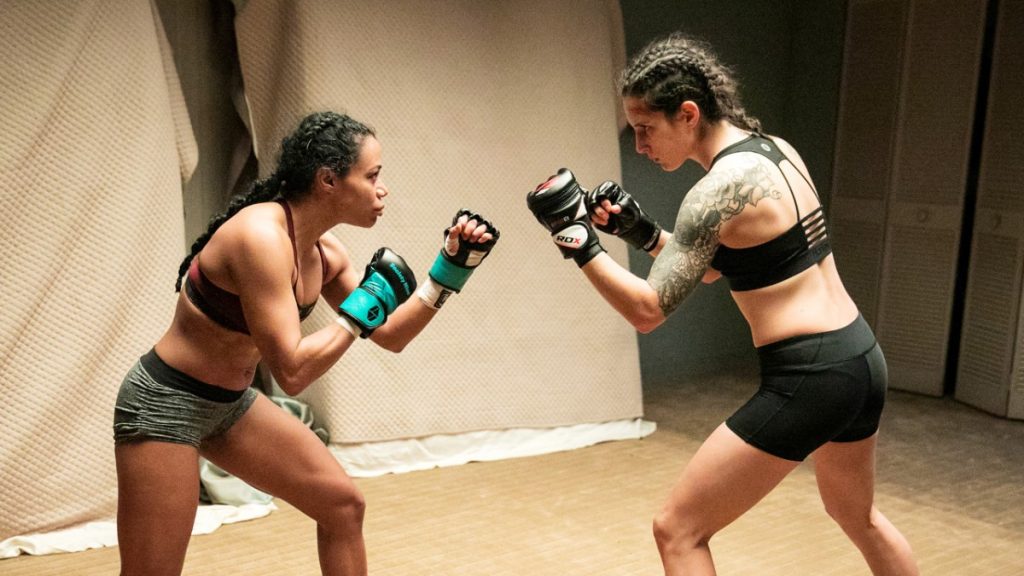
“One thing we wanted to do is tell wildly disparate stories, and allow different voices in to help tell those stories,” explained Mark Duplass. To emphasize, the episode titled “Voyeurs” was dramatized without a word of dialogue. A maid at the hotel finds evidence that a call girl was in the room the night before, rekindling her own past –and similar occupation – then reconnecting with her younger self. The entire episode was dramatized through interpretive dance. “The Missionaries” dramatized the story of two Mormons who interpret a few seconds of incidental porn on the television as a sign from God. They test their faith, and their attraction to each other, only to find another possible sign from God that steers them back on the correct path.
Not all of the episodes take place in modern day. “Phoenix” takes place in 1969, with actress Amy Landecker in the role of a sole survivor of a plane crash, who contemplates whether to go back to her old life with her husband and children – or start over with the man she has been cheating with. “The Internet,” one of the two best episodes of the series, takes place in 1997. A young man desperately tries to teach his mother over the phone how to use his laptop. Frustration leads to the deletion of his novel, which he needed to present to an agency the next day, and some unintended words exchanged between mother and son. The result, however, strengthens the bonds of family.
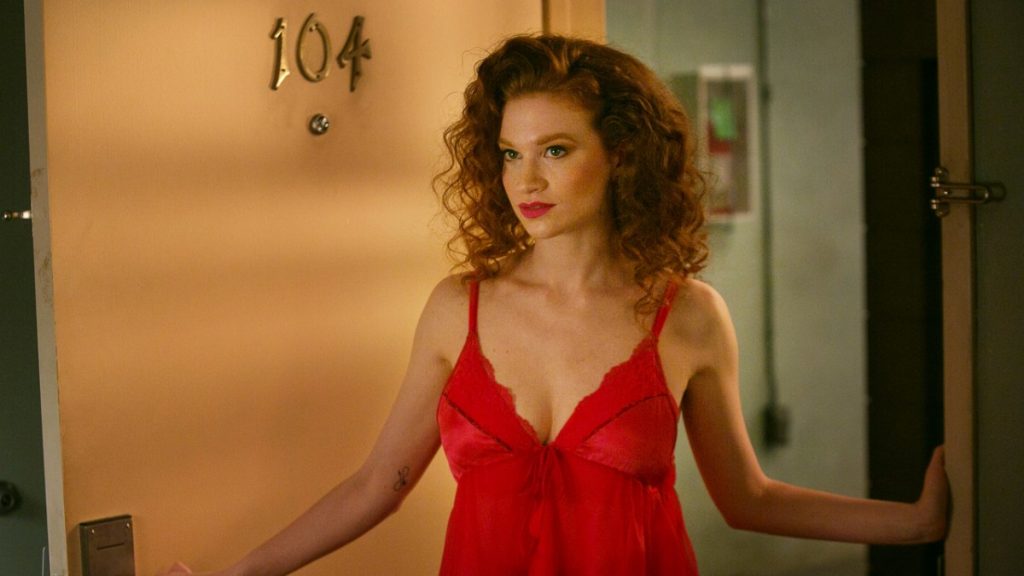
The final episode of the series, “My Love,” dramatizes an elderly couple reliving their honeymoon night 56 years prior. When the old woman dies of old age that night, the old man takes a moment and confesses the secrets he held back, and an admission that concludes with the ultimate act of forgiveness. “My Love” may just be the saddest and most touching love story ever told.
The complexities of filming the series were grand: one set built in a single studio, beds bolted to the floor, real running water for the shower and sink, and water pressure all had to be built from scratch. For stories that took place in different decades, the carpet, curtains, bed sheets and other props were changed out to fit the time period. But you could easily tell it was the same hotel room.
Many of the actors in the series are not established names. One of them is best known for his role in AT&T commercials; another is the CEO of Team Bully Buster in Studio City, California. Jay Duplass himself plays the starring role in “I Knew You Weren’t Dead.” All of which may have appealed to the executives at HBO, budgetary concerns taken into account. But what is remarkable is the fact that each 25-minute episode was shot in three days and every actor and actress provided Emmy-nominated performances.
Like most television anthologies, there will be some hits and misses. Room 104 scored with more hits and impressive story-telling this go-round, which is why I am not surprised that HBO renewed the series for a second season.


